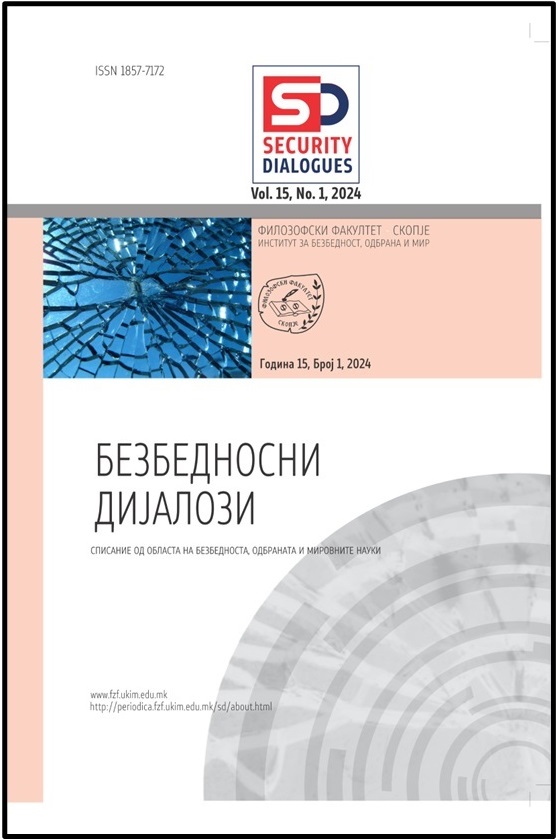NATO AND SECURITY IN BOSNIA AND HERZEGOVINA IMPACT AND CHALLENGES
ДОИ:
https://doi.org/10.47054/SD2516177bКлучни зборови:
NATO, Security, Bosnia and HerzegovinaАпстракт
The North Atlantic Treaty Organization (NATO), comprised of 32 member states
from North America and Europe, represents the largest military and political alliance of
today. Membership in NATO is widely accepted as a guarantee of security, but it has been
a subject of political conflict in Bosnia and Herzegovina for an extended period, as well
as in other countries in the region. Currently, all Western Balkan countries (Albania, North
Macedonia, and Montenegro) except Bosnia and Herzegovina and the Republic of Serbia are
full members of NATO. Under the guise of military neutrality, the Republic of Serbia rejects
the desire for full NATO membership, citing the NATO bombing of the then Federal Republic
of Yugoslavia in 1999 as a key argument against joining. Bosnia and Herzegovina initially had
unanimous support for full NATO membership after the signing of the General Framework
Agreement for Peace in Bosnia and Herzegovina, but over time, this support weakened and
transformed into open opposition from representatives of the Republika Srpska entity. The
lack of a pragmatic and thorough assessment of the interests of joining NATO, considering
regional and global developments, Russian influence on the Balkans and the fact that there
is a new reordering of the fragmented order in which military-political neutrality loses its
meaning, further complicates the integration process in Bosnia and Herzegovina. Analyze of
the impact of Bosnia and Herzegovina’s membership in NATO and its consequences are in
focus of this paper.


